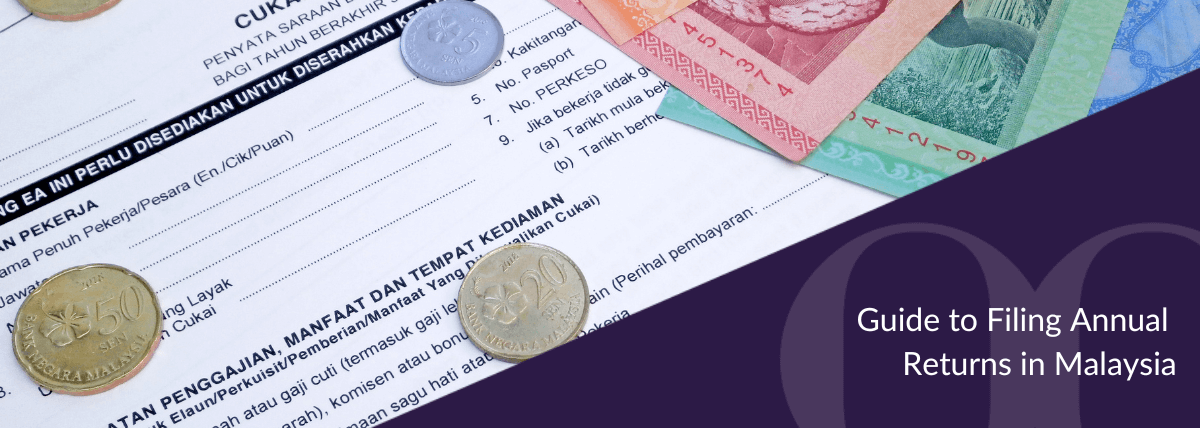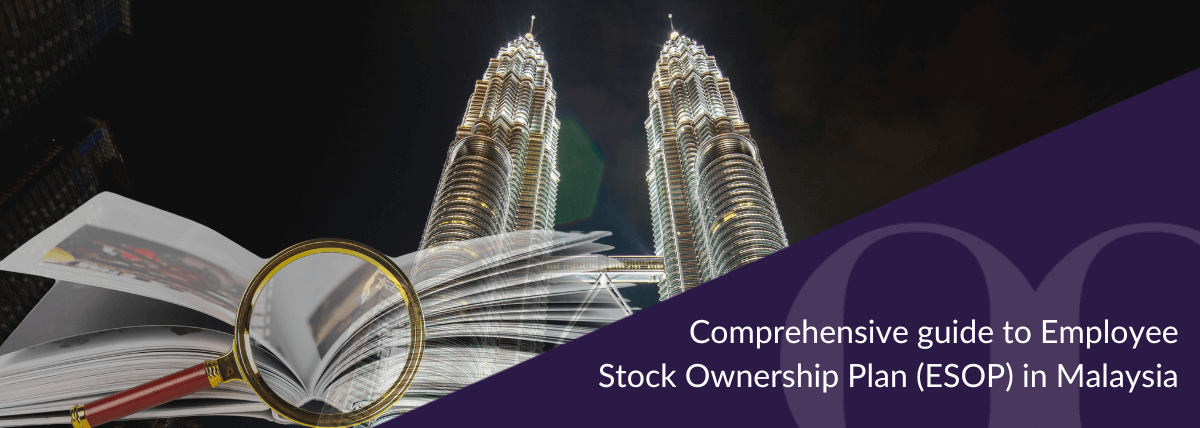This Comprehensive Guide to Employee Stock Ownership Plans (ESOP) in Malaysia navigates the intricacies of ESOPs within Malaysia’s business landscape. From understanding the fundamentals of employee stock option plans to practical implementation, it’s your go-to resource. Whether you’re a business leader, HR professional, or just curious about stock options for employees, we shed light on their significance and how they contribute to organisational success in Malaysia.
Understanding Employee Stock Ownership Plan (ESOP)
As Malaysia faces a shortage of skilled labour, especially in the science and technology field, understanding how Employee Stock Ownership Plans (ESOPs) work may be key to attracting and retaining talent in Malaysia.
An ESOP is a scheme introduced by the company, issuing a share option to eligible employees by giving them the contractual right to acquire shares of the company in the future at a predetermined preferential price. This means employees gain the opportunity to become partial owners of the company, aligning their interests with its success.

How does an Employee Stock Ownership Plan (ESOP) work?
In essence, employees are given the right to purchase or receive shares, often at a predetermined price, also known as the exercise price. This process involves the allocation of stock options, which employees can later exercise, allowing them to become partial owners of the company.
The allocation and exercise of these share options are intricately linked to the company’s performance. As the company prospers, the share value typically increases, providing employees with a direct financial benefit. This mechanism aligns the interests of employees with the overall success and growth of the organisation.
ESOPs often include a vesting period, during which employees must fulfil certain conditions, such as completing a specified tenure, to gain full ownership of the allocated stocks. This not only encourages employee retention but also ensures a gradual transition of ownership rights, promoting a sense of long-term commitment.
Benefits of ESOP
Employee Stock Ownership Plans (ESOPs) offer diverse benefits for both employees and companies. They serve as powerful motivators, fostering ownership and commitment among employees. This alignment leads to increased productivity and a positive organisational culture. ESOPs contribute to employee retention and can be instrumental in attracting top talent in Malaysia. From the company’s perspective, ESOPs provide a strategic tool for sharing growth benefits, making them a notable example of stock options for employees. Overall, ESOPs create a mutually beneficial relationship between employees and organisations for sustained success.

Implementing an ESOP in Malaysia
Implementing an Employee Stock Ownership Plan (ESOP) in Malaysia requires a strategic and systematic approach aligned with the country’s legal framework. This begins with the careful design of the ESOP, addressing unique organisational goals, participant eligibility, share option allocation, and the vesting period.
A well-considered approach to these elements ensures the ESOP aligns with the company’s vision, engages employees effectively, and complies with legal requirements in Malaysia.
ESOP administration and compliance
Ensuring the effective functioning and legal adherence of Employee Stock Ownership Plans (ESOPs) in Malaysia relies on diligent administration and compliance efforts. Administrative excellence involves accurate record-keeping of stock options, allocations, and transactions, with that helps to streamline these processes for real-time access and enhanced efficiency. An online paperless approach also aligns with sustainability efforts and streamlines documentation, enhancing efficiency and cost-effectiveness.
On the regulatory front, staying informed about Malaysia’s legal framework is important. Adherence to guidelines from bodies like the Capital Markets and Services Act 2007 (CMSA) is essential to minimise risk of non-compliance.
Implementing robust security measures, such as two-factor authentication and regular updates, is essential to safeguard sensitive personal data.
Administration and compliance of ESOPs in Malaysia require a blend of advanced technology that adheres to legal frameworks and a steadfast commitment to data security. This would ensure a smooth and successful implementation for companies considering employee incentive schemes,

ESOP and other forms of employee ownership
ESOPs represent one form of employee ownership. Other structures include Performance Share Plans (PSP), Restricted Share Plans (RSP), Share Appreciation Rights Schemes (SAR), and Phantom Share Schemes (PSS). Each structure offers flexibility for companies to tailor ownership incentives based on culture, financial goals, and employee engagement preferences. The array of employee stock option plans allows for customisation within the broader spectrum of employee ownership.
Why is an ESOP good for a company?
Implementing an Employee Stock Ownership Plan (ESOP) can bring several advantages for a company:
ESOPs can be a strategic tool for enhancing employee engagement, attracting and retaining talent, and contributing to the overall success and sustainability of a company.
Frequently Asked Questions (FAQs)
1. What does ESOP stand for?
ESOP stands for Employee Stock Ownership Plan, allowing employees partial ownership through stock options or shares.
2. What is an example of an ESOP?
A notable example of an Employee Stock Ownership Plan (ESOP) is the one implemented by Publix Super Markets, Inc. Publix, a large U.S. supermarket chain, established an ESOP that gradually transitioned ownership to its employees. Through this plan, Publix employees have the opportunity to acquire shares of the company over time, aligning their interests with the overall success and growth of the organisation. This example illustrates how ESOPs can be used as a strategic tool to create a sense of ownership among employees and foster a positive workplace culture.
3. Are ESOPs good for employees?
Yes, ESOPs benefit employees through financial ownership, motivation, long-term retention, financial security, and potential participation in decision-making. Effectiveness depends on factors like the company’s financial health and communication strategies. Employees should always carefully consider the details of the ESOP in Malaysia, and companies should ensure clear communication to maximise the benefits for all parties involved.
Related Business Insights
-

08 Jul 2024
Guide to Filing Annual Returns in Malaysia
Ensure compliance and maintain your business's integrity in Malaysia with this guide on filing annual returns effic …
READ MORE -

24 May 2024
10 Advantages of Outsourcing Your Payroll Services
Explore the benefits of outsourcing payroll and discover how outsourced payroll providers like BoardRoom can stream …
READ MORE -

24 May 2024
IPO Application: A Guide to Listing Your Company in Malaysia
Navigate your IPO application in Malaysia effortlessly with BoardRoom's expert support and unlock opportunities on …
READ MORE

